MATT PRICE ON CRITICISM, PHOTOGRAPHY, AND THE STATE OF SKATE MEDIA
A Rolling Conversation About Creativity Edited For Your Reading Enjoyment
Matt Price by Matt Price 2023
Welcome back to the new look Artless Substack®.
A while back photographer Matt Price made a Tweet about critics that went #SkateTwitter viral. I’m a huge fan of Matt’s work and also, I appreciated that he put an opinion out and created a dialog. Even better, it was a real back-and-forth type thing with opinions rather than insults and whatnot.
You can peep the thread by clicking here because you can’t embed Tweets or Xs or whatever the fuck anymore.
At the time, I thought speaking to Matt about this topic would be cool. Life happened and the piece didn’t but I was compelled to reach out almost a year later to have a chat. So we did.
What you’re about to read is about 2,000 words from our hour-long conversation. I debated running the entire thing because it was a fantastic and inspiring chat, but hey, with attention spans what they are these days, let’s start here. Maybe the whole jawn will be some bonus content in the future.
Matt Price is also the co-founder & CCO of Kinser, a creative agency that—in my semi-informed opinion—brings a fresh and artistic lens to advertising, specifically in the skateboarding-related wares category.
Please enjoy these pieces from our conversation about criticism, creativity, and the state of skate media.
Nick Matthews “The Back Smith Heard Round the World” Photograph by Matt Price
ARTLESS: You’ve talked about being heavily involved in online photography forums early on in your career How did that criticism help you?
MATT PRICE: I think informed criticism is important, especially in this day and age where everyone has a platform, everyone has a mouthpiece, and everyone's been empowered to think that they’re a critic. I firmly believe that you can't be a proper critic unless you've attempted to do the thing you're critiquing. If you don't have an understanding of what it takes to do something, you can still talk shit all day, but if you've gone out to shoot skate photos—even if you suck—you've tried it, you put yourself in the trenches, and because you've done the activity you have a different appreciation for it.
Going back to the forum days, getting critiques from people who were significantly further along than you in your craft is invaluable. Criticism is important, especially when you're in the early stages of learning. This is going to sound a little bit shitty, but there is some aspect of gatekeeping that is helpful. I don't believe in huge gates. I don't believe in 14-foot gates of barbed wire, but if there's a five-foot gate and you are scared to jump over, it can make you push through a little bit.
I was critiqued as a kid and those dudes were harsh and mean, but it lit a fire under me. It helped me to be like, 'Oh, I'm gonna learn because I want to make sure these assholes like my pictures!'
That being said, when someone is giving feedback, you always need to understand the power you hold as someone that person looks up to or respects or whatever. It's a dangerous, dangerous position to be in.
“I’ll steal some gas, fix my motor… ” Check out Matt’s IG if you aren’t already following him.
What was it like submitting your work to a magazine in the heyday of print, knowing a Grant Brittain, etc. was going to look at and critique your work?
If you're giving your photos to Dave Swift or Grant, at the end of the day they're the voice of the magazine and whatever they say goes. I was fully prepared for them to straight up say 'yes' or 'no', no matter how much value I thought what I was submitting had. I had to be prepared for that. Luckily they were cool bosses and the feedback wasn't that harsh.
When you're working for a magazine or any media publication, you have to understand that you're helping the people who started that publication build and carry their narrative. That's what you entered into.
Adrian Lopez 1998 Photograph by Thomas Campbell (Courtesy of Chrome Ball Incident)
What sucks is that a relationship like that can stifle some creative people. Think about someone like Thomas Campbell—who I think is one of the most talented photographers of all time. His photos didn't always fit into the mold of Transworld. Transworld had a vibe, an energy, and a style. Those guys would get Thomas Campbell photos and not know what to do with a lot of them. Thomas knew they were good but maybe the person seeing them didn't feel that they fit their narrative and that's something that could push a unique style or voice out.
You touched on something that's very nuanced and can be difficult to accept. You can make something that's technically sound and that works visually, but that doesn't mean it's “right” for the project or magazine.
The hardest thing about making art is that it's so subjective, right?
It's hard to say what's "good" or "bad"--what's "right" or "wrong." I always say to people that if you want to be an artist, go be an artist.
If making art makes you happy don't expect to get anything else from it aside from a good feeling in your soul.
If you want to have a job, then you have to play by some rules and there will be different rules for every job. When you get to make something that is exactly what makes your soul feel good and then you get money for it, that's the dream.
Do you feel that because there are fewer opportunities for traditional media as an artist and photographer, you have to seek other places to do your thing?
Unfortunately, I'm not a huge seeker. I don't like trying to find a place to put stuff. That's what Golden Hour was: my place to put work that didn't fit anywhere. I just made my own thing and didn't care how small it was. These days, most of my best work happens within the confines of a job because of the need to make money and survive. There's Closer which is great but it's only four times a year. I don't want to make my own magazine every three months or whatever because it's exhausting. I guess I'm lazy in that way. [laughs]
Golden Hour Issue 4 - Still available (hint, hint)
But if I see a skater that inspires me, I will reach out to them. I’ll go shoot with those skaters just for the sake of shooting with them and developing relationships, but that's kind of few and far between at this point. Also, interests change as you get older. I'm not trying to just be out all day, every day in the streets in LA. I love skateboarding but with where I am right now, I don't necessarily love that part.
Louie Lopez defining dipped. Photograph by Matt Price
Not to be a downer but it kind of feels like we're at this sad point where a person like yourself doesn't get the opportunity to almost “graduate” to be the photo editor of a magazine, so you can help other photographers instead of feeling the pressure to be in the streets.
Right. I would want that opportunity but I also don't want to run that business. Skate photography as a career has kind of disappeared. There are only a few people I can think of that make a full living doing it at this point and what is that living?
I'm 37, so a nice living to me is paying my bills and taking a vacation once a year--middle-class shit. Maybe five people on Earth can afford that by shooting skate photos? I'm not saying it's fair or unfair, that's just how it is. What I think is sad is that everyone--not just people making photographs--has to wear so many hats. You're a photographer and a team manager. You book flights, you pack boxes, you do design work, and you run social media. Some people could and should be excelling but have to juggle other things just to make money in skateboarding.
To go back to your question, it's a bit of a bummer that there's no magazine I could go apply for a job as a photo editor. I mean, there is one, but they wouldn't hire me in a million years.
I think skating could benefit from more styles and views of skateboarding being represented. That's the biggest shame to me. The magazines and media have the power to put people on the map and that map is shrinking.
Fuck, don't make me sad. [laughs] You work 20 years to be as good as you possibly can at this very specific niche thing, you get to a point where you feel confident, and then there's literally nowhere to showcase your ability.
Shit, the mags don't even have photo annuals anymore, which used to be my favorite thing in the world.
Totally. I will say that Europe is a bit different. Solo had an issue where they were looking for experimental and unique photo essays that I participated in. That was exciting because I have plenty of weird ideas and usually don't have time to make things just for fun. It was a great opportunity.
But you're right, Thrasher doesn't do a 13th issue anymore. They're not known for being the most out-there artsy, experimental photography magazine, of course, but they occasionally indulge that stuff a little bit—showcase some creative weird shit in there. We're just back to meat and potatoes content—tour articles and stuff.
Marbie Miller with the flick, Matt Price with the Flash.
This makes me think of something so simple that’s a bit lost or at least rare in skateboarding. I like portraits in general, but you don't see a lot in skating. Lou Reed was a prolific musician and people liked to take pictures of him because he was interesting. There are so many photos of Lou Reed and that’s amazing, but we don't necessarily look at skating or skateboarders that way. How many portraits do you see of Heath Kirchart or whatever...
Skateboarding reduces skaters to their tricks. It reduces people to their actions to a point where so many skaters don't have enough to stand on their own without those skate tricks. Also, the skaters hate doing it (posing for portraits) because they feel like they're nothing without their tricks.
I can't tell you how many times I've wanted to shoot more portraits of skaters and they're so uncomfortable and they're so stiff. They hate it. They want to shoot bangers. The second you got to shoot a portrait, they're fucking petrified. They don't want to be in front of a camera, which is kind of sad. Skaters can feel like a trick defines them—that's all they have to offer and a picture of their face is useless and meaningless. That makes them uncomfortable.
As photographers, we need to foster a sense of like, 'Hey, you're interesting, you're cool, and you do cool things when you're skating--let's document that.'
We miss out on so many moments because we're just talking trained to define people as their tricks. I've been working for the last five years—maybe a little more—to shoot portraits of people to try and put them in interesting situations. I'm still not great at it. I'm relearning that whole part of photography, but I make it a point when I'm out with people now to snap at least a couple of portraits.
A triptych of Mr. Price’s portraits. Head to Matt’s site (specifically the Blog section) to enjoy more.
What we’ve been talking about highlights something unique about where media in general is. On one hand, you have the ability for anyone to make what they want… often for free and that gives a voice to people who were often ignored. On the other, because we’re so used to free content, there’s no money to showcase things or nurture art, unless it’s selling something.
It's funny, as you said that you sparked another idea—this concept of the reverse gatekeeper. Let's just talk about magazines, right? There was an editor who was the chief creative of the magazine, then the owner or publisher above them.
The editor's job was to be the barrier between the people making things and the people thinking about money. That's such an important role to foster a community and whether it's a magazine or a paper or whatever—shielding all the creatives, nurturing them, and letting them come up without getting the shards of fucking nickels and pennies raining down from the top.
That's a crucial thing that is disappearing because the middlemen are getting cut out. Publications and media companies are realizing, 'Oh, we can just hire these photographers straight-up and pay them nothing and they'll do it because people want to do this so badly.'
Those people—the ones that are protecting and nurturing art—just don't exist anymore and even if they do exist, they're not coming from a place... fuck, this is going to sound pretentious... they aren't coming from an art-minded space or they think of the best way and most special way of showcasing skateboarding. It's usually thought about from the perspective of, ‘What's the headline? What's hot, what's going to sell... what's going to create clicks?’


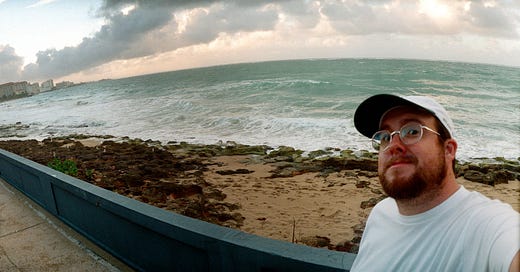



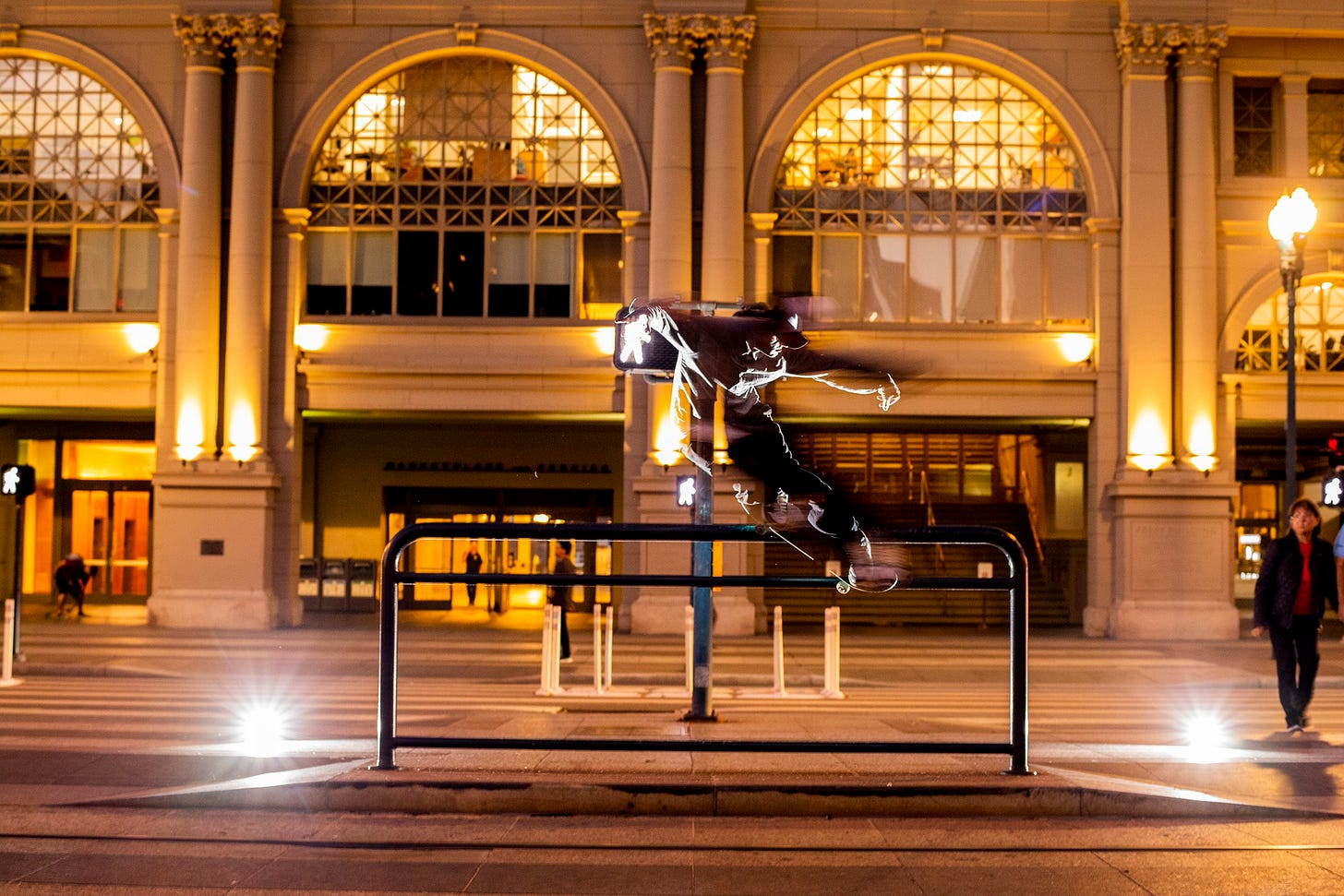


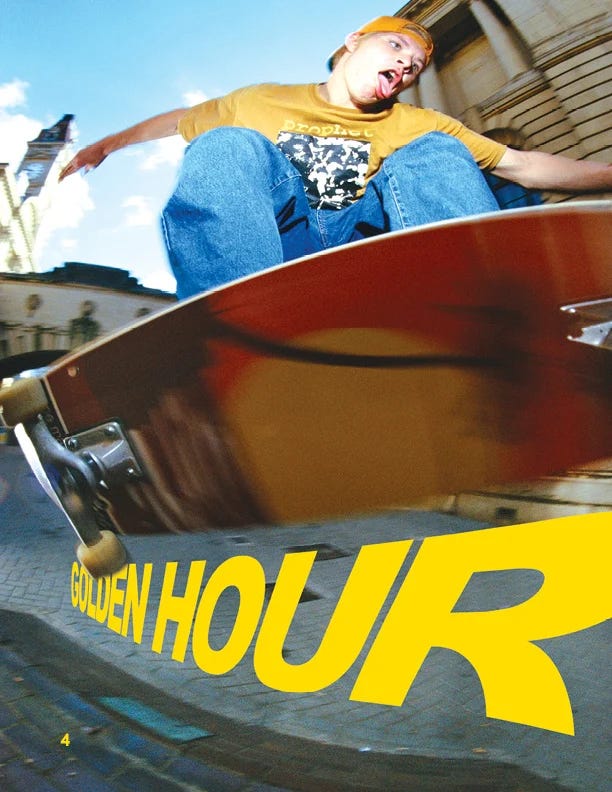
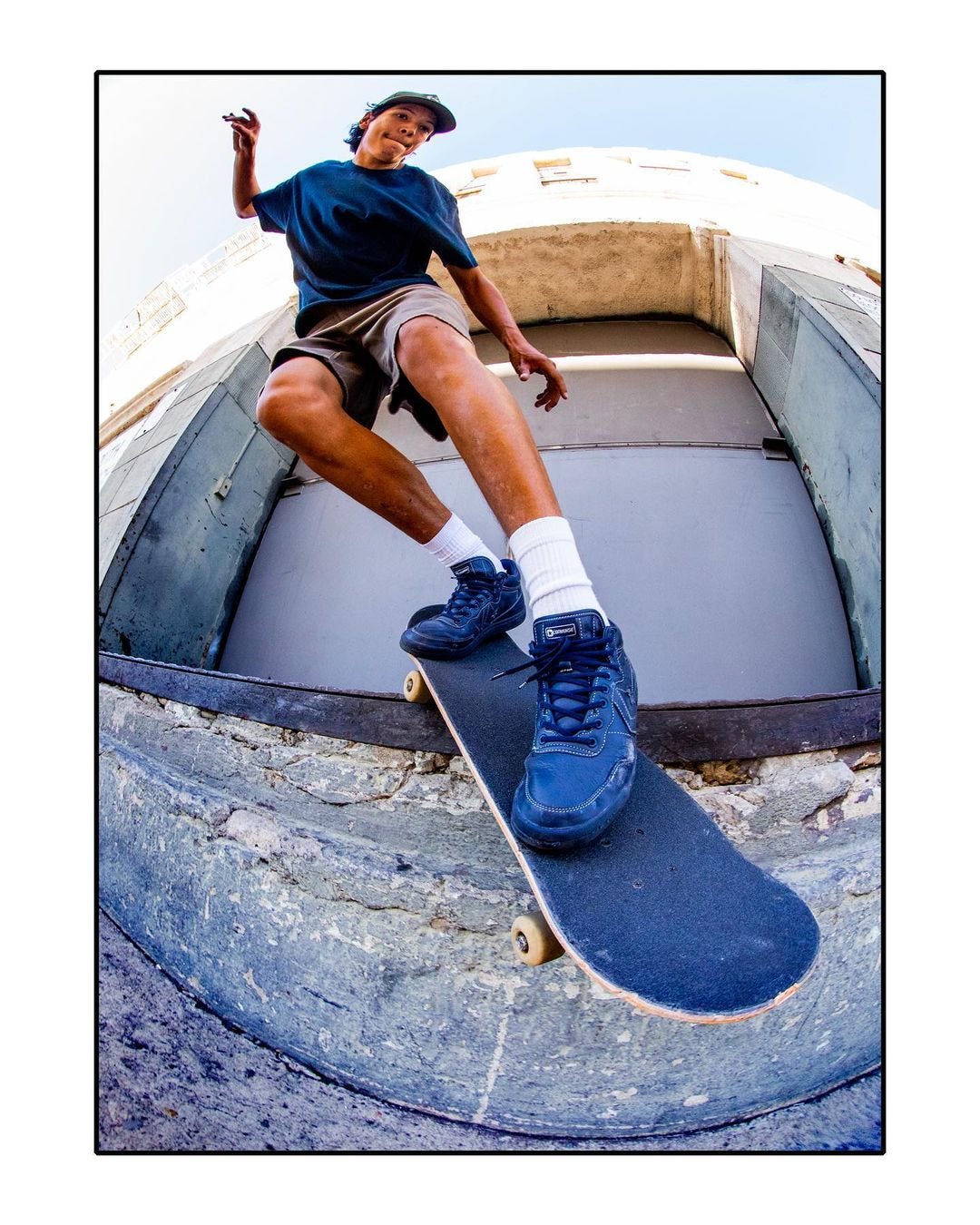
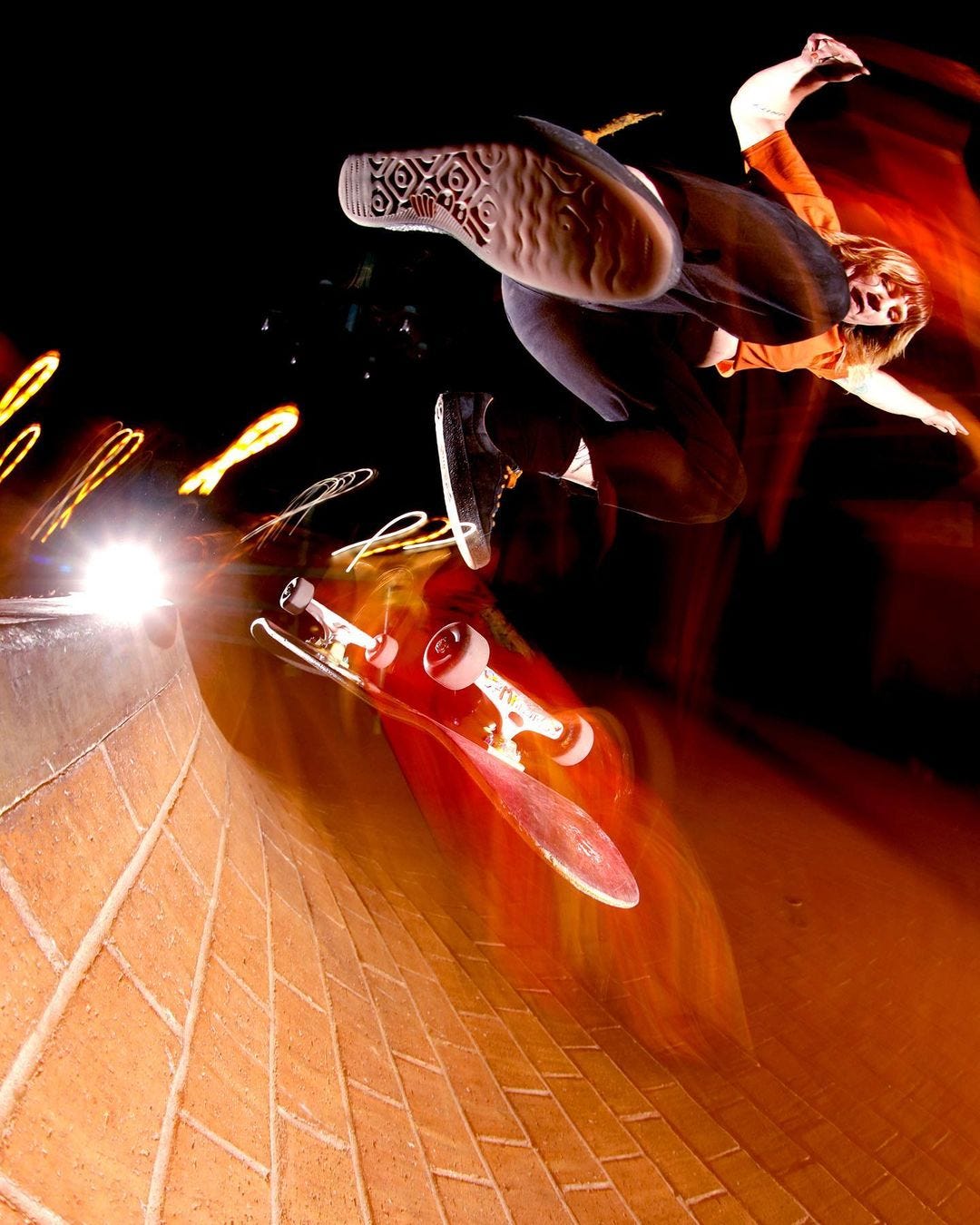


Very interesting piece, although I'm really not sure what to make of the statement 'you can't be a proper critic unless you've attempted to do the thing you're critiquing'.